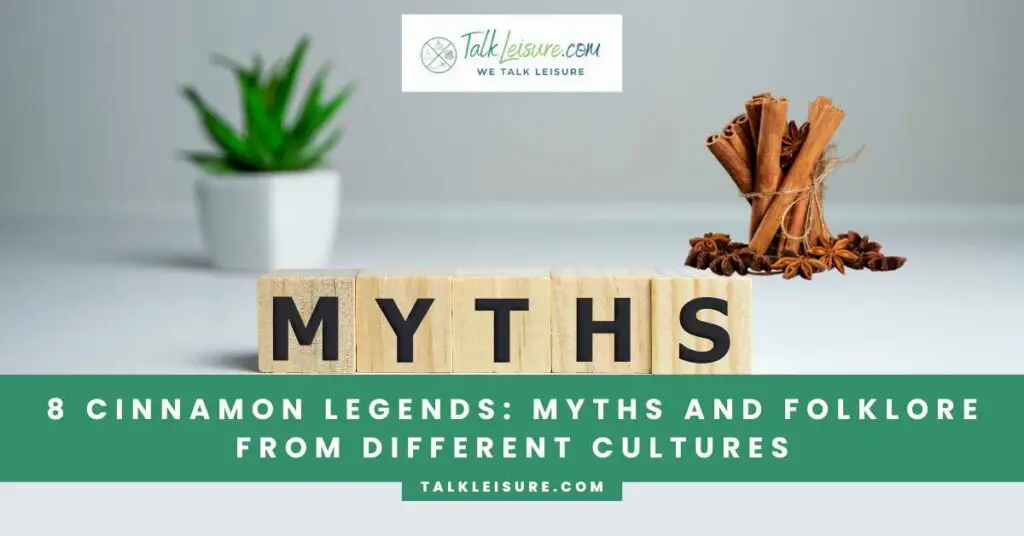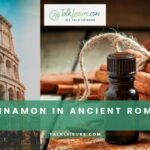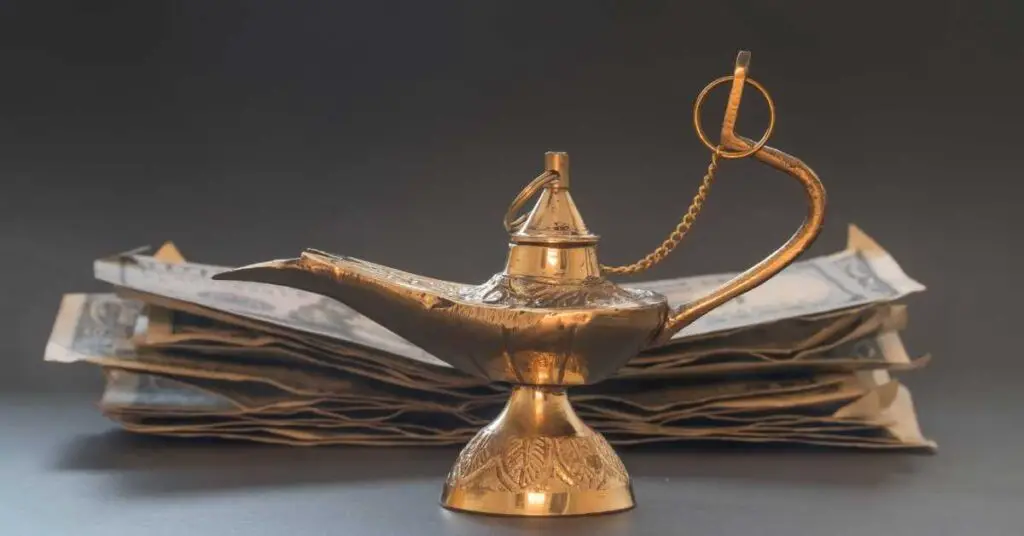Cinnamon is a popular spice that is commonly used in cooking and baking due to its warm and sweet flavor.
It has a long history and has been used for centuries in different cultures around the world.
In this blog, we will explore the cultural significance of cinnamon and its role in myths and folklore.
Overview of Cinnamon
Cinnamon is derived from the bark of trees belonging to the Cinnamomum genus. The two main types of cinnamon are Ceylon cinnamon, also known as “true” cinnamon, and Cassia cinnamon. Ceylon cinnamon is considered to be of higher quality and has a milder flavor, while Cassia cinnamon is more commonly found and has a stronger taste.
Cinnamon has been highly valued throughout history for its medicinal properties and as a flavoring agent. In ancient times, it was considered a luxury item and was often used as a gift to kings and gods. It was also used in embalming practices in ancient Egypt.
Today, cinnamon is a staple in many cuisines, particularly in desserts and baked goods. It is also used in savory dishes, such as curries and stews, to add warmth and depth of flavor. In addition to its culinary uses, cinnamon is also used in traditional medicine for its anti-inflammatory and antioxidant properties.
Cinnamon’s Role in Myths and Folklore
Cinnamon has a rich history in myths and folklore, where it is often associated with love, luck, and protection. In some cultures, it is believed that carrying a cinnamon stick can attract good fortune and ward off evil spirits.
In Greek mythology, cinnamon was said to be a gift from the gods and was associated with the fire goddess, Hestia. It was believed to have been rewarded to the gods for their protection and was used in rituals to invoke their favor.
In Indian folklore, cinnamon was believed to have magical powers and was used in various rituals to bring love and happiness. It was also used as an aphrodisiac and is considered a symbol of passion and desire.
In conclusion, cinnamon is not just a spice used in cooking, but it also holds a significant cultural and historical importance. Its sweet aroma and flavor have captured the hearts and taste buds of people around the world for centuries. Whether in ancient rituals or modern-day recipes, cinnamon continues to add warmth and magic to our lives.
Ancient Egyptian Legend: Cinnamon as an Offering to the Gods
Cinnamon, the beloved spice, had a significant role in the ancient Egyptian culture and mythology. Let’s delve into the enchanting legends and rituals associated with this aromatic treasure.
Cinnamon in ancient Egyptian rituals and offerings
Ancient Egyptians highly esteemed cinnamon for its aromatic properties and believed it possessed magical powers. They used cinnamon extensively in religious rituals and as offerings to the gods.
The priests would burn cinnamon as an incense, filling the temples with its sweet fragrance. The smoke was believed to carry prayers and offerings to the divine realm, invoking the favor of the gods.
Cinnamon was also used in embalming rituals. The bark was used to wrap small charms or amulets that were placed inside the coffins to accompany the deceased into the afterlife.
The significance of cinnamon in Egyptian mythology
Cinnamon played a symbolic role in Egyptian mythology. It was associated with various gods and goddesses, enhancing their divine presence and protective qualities.
Goddess Isis, the mother of Horus and the symbol of fertility and magic, was often depicted wearing a crown adorned with cinnamon sticks. It was believed that the presence of cinnamon enhanced her powers and blessings.
Similarly, cinnamon was associated with the fire goddess, Hestia, in Greek mythology. It was seen as a gift from the gods, bestowed upon humans to bring warmth, love, and protection.
From ancient rituals to myths and legends, cinnamon has had a lasting impact on human culture and imagination. Its significance in the ancient Egyptian civilization shows how this humble spice continues to capture our hearts and minds today.
Greek Mythology: Cinnamon and the Phoenix
In addition to its significance in ancient Egyptian culture, cinnamon also holds a special place in Greek mythology. Let’s explore the intriguing connection between cinnamon and the mythical bird, the Phoenix.
The story of the Phoenix and its connection to cinnamon
The Phoenix was a legendary bird known for its ability to rise from its own ashes. According to Greek mythology, this majestic bird would build a nest and set it aflame, only to be reborn from the ashes. The Phoenix was believed to have lived for hundreds of years before ultimately meeting its fiery end.
One particular version of the Phoenix’s story links cinnamon to its existence. It was said that the Phoenix would collect cinnamon twigs to build its nest. As the nest burned, the aroma of cinnamon would fill the air, creating a unique and enchanting scent.
Cinnamon’s mythical properties in Greek folklore
In Greek folklore, cinnamon was associated with various magical and protective properties. It was believed to possess the ability to ward off evil spirits and bring good fortune. Greek households often welcomed guests by offering them cinnamon-infused drinks as a sign of hospitality and protection.
Cinnamon was also used in love spells and potions, as it was believed to enhance desire and passion. Its enticing aroma was thought to allure and capture the heart of the desired person.
Through its connections to the Phoenix and its mythological properties, cinnamon has continued to captivate our imagination throughout history. Its aromatic treasure has left an indelible mark on both ancient Egyptian and Greek cultures, enriching our understanding of the spice’s enduring allure.
Indian Folklore: Cinnamon and the Serpent King
In addition to its significance in ancient Egyptian and Greek cultures, cinnamon also plays a significant role in Indian folklore. Let’s uncover the fascinating connection between cinnamon and the legendary serpent king.
Cinnamon’s association with the serpent king in Indian myths
In Indian mythology, the serpent king Vasuki plays a prominent role. According to legends, Vasuki is known as the ruler of Nagaloka, the mythical underworld inhabited by snakes. Cinnamon is believed to be a favored treasure of the serpent king, with its distinctive aroma representing divine protection and abundance.
It is said that Vasuki would coil around Mount Meru, the cosmic axis, while holding a jar of cinnamon in his mouth. As the gods and demons would rotate the mountain to churn the cosmic ocean, the powerful essence of cinnamon would radiate, filling the world with its enchanting fragrance.
The role of cinnamon in magical rituals and beliefs
In Indian folklore, cinnamon is associated with various magical rituals and beliefs. It is believed to possess healing properties and is often used as an ingredient in ayurvedic medicine. Cinnamon sticks are burned as incense during ceremonies to cleanse the environment and ward off negative energies.
Cinnamon is also used in love spells and rituals to enhance attraction and create harmonious relationships. It is believed to awaken sensuality and kindle passion between lovers. In some traditions, couples exchange cinnamon sticks as a symbol of their commitment and desire for a long-lasting union.
Through its association with the serpent king and its significant role in magical rituals, cinnamon has become deeply intertwined with Indian folklore. Its enticing aroma and mystical properties continue to invoke a sense of awe and wonder, captivating the imaginations of those who embrace its ancient allure.
Chinese Legend: Cinnamon and the Immortals
In addition to its significance in Indian folklore, cinnamon also holds a special place in Chinese legends and traditions. Let’s explore the fascinating connection between cinnamon and the immortals.
Cinnamon’s significance in Chinese tales of immortality
In Chinese mythology, the concept of immortality is deeply ingrained in the culture. Cinnamon is often associated with immortality and is believed to have the power to bestow longevity and vitality. One famous tale tells of the Eight Immortals, legendary figures in Chinese folklore, who embarked on a quest for eternal life. During their adventures, they encountered a cinnamon tree that symbolized eternal youth and immortality.
Cinnamon’s captivating aroma was said to attract the immortals, leading them to discover the tree’s magical properties. It was believed that consuming cinnamon or using it in various rituals would grant individuals a taste of immortality and eternal rejuvenation.
Cinnamon’s use in traditional Chinese medicine and rituals
Cinnamon has long been valued in traditional Chinese medicine for its medicinal properties. It is believed to warm the body, invigorate the Qi (life force), and promote circulation. Cinnamon is often incorporated into herbal remedies to treat various ailments and enhance overall health.
In Chinese rituals and ceremonies, cinnamon is burned as incense to purify the surroundings and create a sacred atmosphere. Its sweet and spicy aroma is believed to dispel negative energies and attract positive influences. Cinnamon is also used in offerings to deities and ancestors as a symbol of respect and gratitude.
Through its prominent role in tales of immortality and its use in traditional Chinese medicine and rituals, cinnamon continues to hold a treasured place in Chinese folklore. Its enchanting fragrance and perceived mystical properties captivate people’s imaginations and reaffirm its status as a revered ingredient in Chinese culture.
Roman Mythology: Cinnamon and the Goddess of Love
In addition to its significance in Chinese legends, cinnamon also plays a fascinating role in Roman mythology. Let’s delve into the connection between cinnamon and the goddess of love.
Cinnamon as a symbol of love and desire in Roman myths
Cinnamon holds a special place in the myths and tales surrounding Venus, the Roman goddess of love and desire. In Roman mythology, cinnamon is associated with passion, sensuality, and the power of attraction.
One popular myth tells the story of Venus using cinnamon to make herself even more irresistible to mortals and gods alike. It is said that she would adorn herself with cinnamon-infused oils and perfumes to enhance her enchanting beauty and allure.
The intoxicating aroma of cinnamon was believed to awaken desire and ignite passion. It was considered an aphrodisiac, symbolizing love and seduction.
Cultural practices involving cinnamon in ancient Rome
In ancient Rome, cinnamon had various uses beyond its association with Venus and love. It was highly valued for its exotic nature and distinct flavor, often used in the preparation of luxurious dishes and beverages.
Cinnamon was also used as a gift and token of appreciation in social and religious gatherings. It symbolized wealth, status, and hospitality, showcasing the generosity of the host. It was not uncommon for cinnamon to be presented as an extravagant offering to important guests or deities.
Furthermore, cinnamon was used in religious ceremonies and rituals, specifically during the festival dedicated to Venus. It was burned as incense to invoke her blessings, promoting love, harmony, and fertility.
With its association with love and desire in Roman myths and its various cultural practices in ancient Rome, cinnamon continues to exude a sense of fascination and allure. Its aroma and symbolism have left an indelible mark on Roman folklore and traditions.
Arabian Nights: Cinnamon’s Magical Powers
Continuing our exploration of cinnamon’s mystical connections, let’s venture into the enchanting world of Arabian folklore. Cinnamon holds a prominent position in Arabian Nights tales, thanks to its captivating magical properties.
Cinnamon’s magical properties in Arabian folklore
In Arabian folklore, cinnamon is believed to possess supernatural abilities, making it a highly sought-after ingredient in spells, charms, and potions. It is considered to have powers related to love, protection, and luck.
Cinnamon is often used to create magical talismans and amulets, believed to ward off evil spirits and bring good fortune to those who carry or wear them. Its warm and inviting scent is thought to attract positive energy and repel negativity.
In some stories, cinnamon is associated with granting wishes and fulfilling desires. It is said that if one lights a cinnamon-scented candle and makes a wish, their desire will come true.
Cinnamon as a key ingredient in enchanted spells and potions
Cinnamon is a staple ingredient in countless enchanted spells and potions. Its aromatic essence is believed to amplify the effectiveness of magical rituals and enhance the potency of other ingredients.
In love spells, cinnamon is often combined with other ingredients associated with attraction and passion, such as rose petals and vanilla. It is used to ignite and strengthen the flames of desire between two individuals.
Cinnamon is also utilized in protection spells to create a shield against negative energies and psychic attacks. It is believed to create a powerful barrier that safeguards the individual from harm.
With its magical properties in Arabian folklore, cinnamon continues to weave its spellbinding charm in tales of love, protection, and luck. Its association with ancient rituals and enchantments adds an air of mystery and intrigue to its timeless allure.
Native American Folklore: Cinnamon as a Protector
Continuing our exploration of cinnamon’s mystical connections, let’s delve into the rich world of Native American folklore. In Native American legends, cinnamon holds a special place as a powerful protective charm.
Cinnamon’s role as a protective charm in Native American legends
In Native American folklore, cinnamon is revered for its ability to ward off evil spirits and protect individuals from harm. It is believed to possess strong spiritual energy that creates a shield of protection around those who possess or use it.
Cinnamon is often used in talismans and amulets, which are worn or carried to keep negative energies at bay. Its warm and comforting scent is said to repel malevolent forces and attract positive energy, providing a sense of safety and security.
Cinnamon’s use in rituals and ceremonies
Cinnamon plays a significant role in Native American rituals and ceremonies. Its aromatic properties are utilized to purify and cleanse sacred spaces, to enhance spiritual connection, and to invite blessings and good fortune.
During rituals, cinnamon may be burned as incense or sprinkled around the ceremonial area to create an atmosphere of protection and spiritual harmony. Its presence is believed to attract benevolent spirits and invoke their guidance and support.
Furthermore, cinnamon is sometimes used in healing rituals to restore balance and harmony to the body, mind, and spirit. It is believed to have medicinal properties that can aid in physical and emotional well-being.
In Native American folklore, cinnamon embodies the essence of protection and spiritual energy. Its use in rituals and ceremonies adds depth and significance to the cultural traditions and beliefs of Native American communities.
With its rich tapestry of mystical connections in Arabian and Native American folklore, cinnamon continues to captivate our imagination and inspire a sense of wonder. Whether it is its association with love, protection, luck, or its role in enchanting rituals, cinnamon’s magical allure is truly timeless.
The Universal Appeal of Cinnamon in Myths and Folklore
Across different cultures and continents, cinnamon has fascinated people for centuries with its captivating aroma and rich flavor. This spice has woven itself into the tapestry of myths and folklore, captivating the imagination and inspiring wonder.
From ancient Arabian tales to Native American legends, cinnamon has been associated with love, protection, and luck. In Arabian folklore, cinnamon symbolizes passion and desire, believed to have the power to enhance love and romance. Native American folklore, on the other hand, holds cinnamon as a powerful protector, keeping evil spirits at bay and providing a shield of safety.
The universal appeal of cinnamon lies in its ability to spark intrigue and evoke emotions. Its warm and comforting scent creates a sense of familiarity and nostalgia, making it both enchanting and comforting.
Conclusion
Cinnamon’s role in myths and folklore extends beyond its mystical qualities. It holds a deep cultural significance, representing the traditions and beliefs of the communities that have embraced it throughout history.
In Arabian culture, cinnamon is deeply ingrained in culinary traditions and is considered a symbol of hospitality and generosity. It is used in various sweet and savory dishes, adding a touch of exotic flavor that delights the senses.
In Native American communities, cinnamon is not only a protective charm but also a key component of rituals and ceremonies. Its use in purifying sacred spaces, inviting blessings, and restoring balance reflects the deep spiritual connection that Native Americans have with the natural world.
These enduring cultural significances demonstrate that cinnamon’s allure extends beyond its taste and aroma. It has become a symbol of identity, tradition, and spirituality for various cultures around the world.












